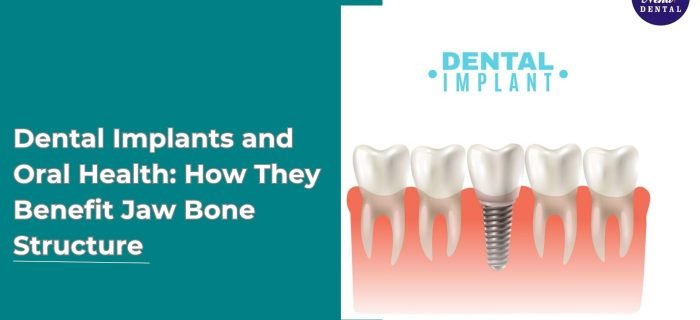Dental implants have revolutionized the field of dentistry, providing a long-lasting solution for tooth loss that closely mimics the natural teeth. While the aesthetic benefits of dental implants are well-known, their profound impact on jaw bone structure and overall oral health is equally significant. In this article, we will explore how dental implants contribute to the health and integrity of the jaw bone.
Understanding Jaw Bone Loss:
When a tooth is lost or extracted, the underlying jaw bone is no longer stimulated by the forces of chewing and biting. As a result, the bone in that area begins to deteriorate over time through a process known as resorption. Without the root structure of the tooth to anchor it in place, the jaw bone gradually loses density and volume, leading to changes in facial appearance and potential oral health complications.

The Role of Dental Implants:
Dental implants are unique among tooth replacement options because they replace not only the visible portion of the tooth but also the root structure. This is achieved through a small titanium post that is surgically implanted into the jaw bone, where it fuses with the surrounding bone tissue in a process called osseointegration. Once integrated, the dental implant serves as a sturdy and durable foundation for a prosthetic tooth or crown.
Preventing Bone Resorption:
By mimicking the function of a natural tooth root, dental implants provide crucial stimulation to the jaw bone when chewing and biting. This stimulation helps to preserve the bone’s density and volume, preventing the resorption that occurs with traditional tooth replacement options such as bridges or dentures. As a result, dental implants offer long-term stability and support for surrounding oral structures.
Maintaining Facial Aesthetics:
One of the most noticeable effects of jaw bone loss is the change in facial appearance that can occur over time. As the jaw bone recedes, it can lead to a sunken or aged appearance, causing the face to appear prematurely aged. Dental implants help to maintain the natural contours of the face by preserving the underlying bone structure, thereby supporting facial tissues and preventing sagging or collapse.
Improving Bite Function and Speech:
In addition to their aesthetic and structural benefits, dental implants also play a crucial role in restoring bite function and speech clarity. Unlike removable dentures, which can shift or slip out of place during eating or speaking, dental implants provide a stable and secure foundation for prosthetic teeth. This allows patients to eat a wide variety of foods with confidence and articulate speech naturally.
Enhancing Overall Oral Health:
Beyond their direct impact on jaw bone structure, dental implants contribute to overall oral health in several ways. By filling in the gaps left by missing teeth, implants help to prevent adjacent teeth from shifting out of alignment, reducing the risk of bite problems and temporomandibular joint (TMJ) disorders. Additionally, dental implants are easy to clean and maintain, promoting good oral hygiene and reducing the risk of gum disease and tooth decay.
Conclusion:
Dental implants offer far more than just aesthetic benefits—they are a fundamental component of maintaining optimal oral health and preserving the integrity of the jaw bone. By providing stimulation to the bone and preventing resorption, implants help to maintain facial aesthetics, restore bite function, and support overall oral health. If you are considering tooth replacement options, dental implants offer a comprehensive solution that can enhance both your smile and your oral well-being for years to come. Schedule a consultation with your dentist to learn more about how dental implants can benefit your jaw bone structure and overall oral health.

